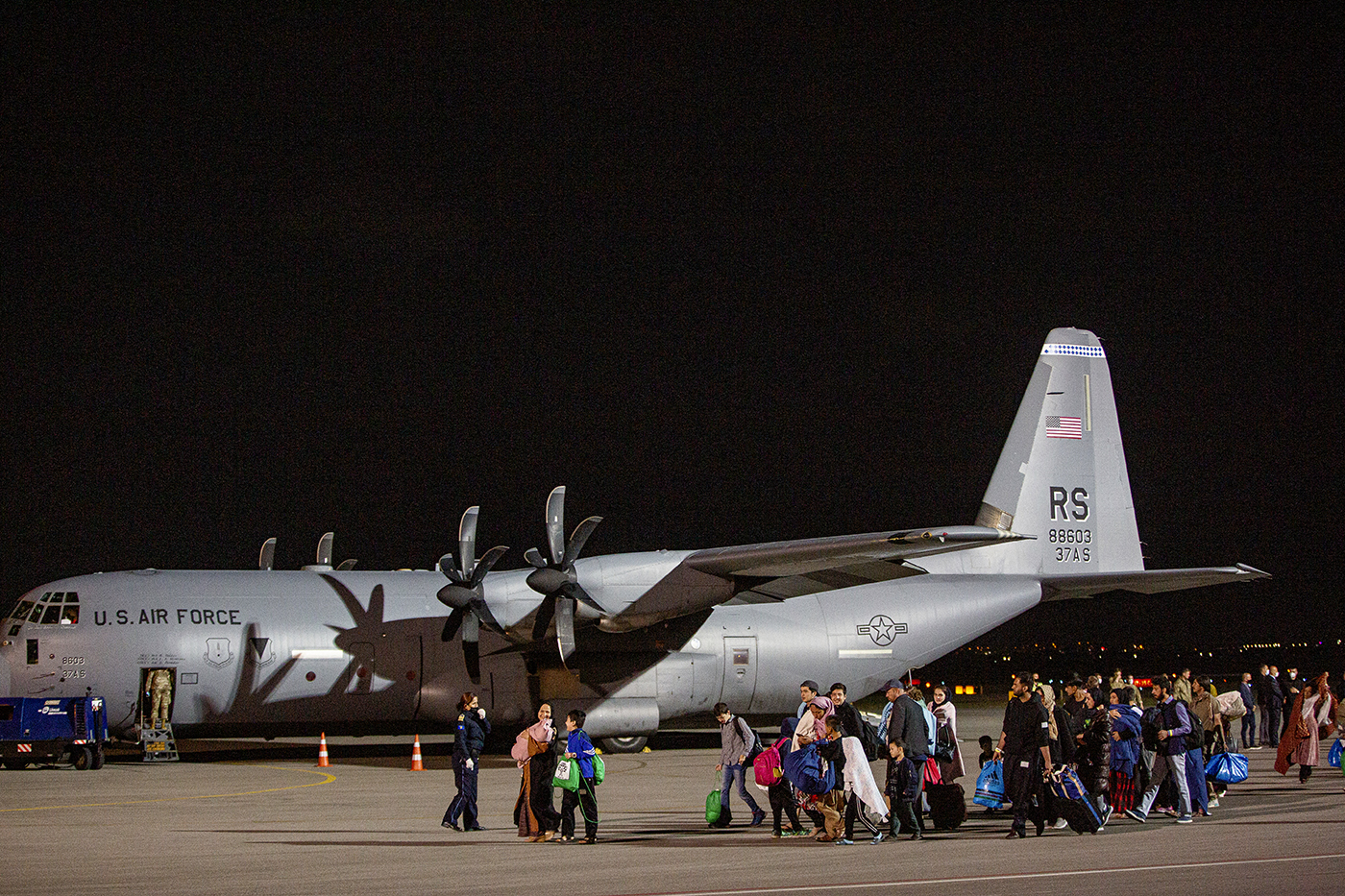[ad_1]
Alexandra (Alex) Meise drove from Philadelphia to Boston en route to his new post as associate professor at Northeastern’s School of Law. The buzzing of his phone reminded him of the more arduous journeys that had been attempted halfway around the world. People she had never met were trying to flee Afghanistan, and she responded to the repeated buzz by stopping to do what she could to help them.
“What I was doing looked like a tiny drop in the bucket,†says Meise, a longtime human rights defender who was appointed in July on Truman Center for National Policy first visiting principal researcher for climate and energy security. “But if I could do something positive to help, then I was going to do it.”
Meise was one of thousands of volunteers from military, legal and other backgrounds to collaborate on the recent “Digital Dunkirk” movement to help people escape Afghanistan ahead of Tuesday’s US withdrawal. Using computers and phones, volunteers contributed to an online version of the 1940 Dunkirk evacuations of Allied soldiers from the beaches of France during World War II.
“Having worked in the field of human rights throughout my professional career, I feel that what you do is never enough,†says Meise. “And yet you have to focus on what you can do and get the wins when you can get them.”
Although she has not worked in Afghanistan, Meise has significant experience working in other areas in transition from their government systems and emerging from conflict, including Yemen, Bosnia and Herzegovina, Cambodia and the United States. Timor Leste.
Collaborating in efforts in Afghanistan with other volunteers from the foreign policy, security and humanitarian communities, she provided information that helped open doors for those seeking to leave the country, including identifying documents. they might need to get to the airport and get on a flight from Kabul.

Khusal Safi, Associate Director of Public Safety and Security at Northeastern. Photo by Ruby Wallau / Northeastern University
Thousands of miles away, a coalition of volunteers used real-time information to guide people to open airport entrances and helped facilitate the connection of evacuees with those organizing evacuation flights in order to ensure the use of as many seats as possible.
Khushal Safi, who heads Northeastern’s international security office and is from Afghanistan, has contributed to “Digital Dunkirk” efforts.
“We were able to get Afghans who supported ISAF [International Security Assistance Force] outside, â€says Safi, who worked in Afghanistan from 2009 to 2014 as a US intelligence officer. “But some have been left behind. We look forward to advice on other exit routes from Afghanistan from the US government. “
The United States airlifted 123,000 people from Kabul airport in August, including 6,000 Americans, an extraordinary effort that has nevertheless failed to rescue the thousands who still need to be evacuated.
“We also know of Afghans who still want to leave and need more advice on how to apply for travel visas,†Safi adds. “In particular, Northeastern hopes to sponsor Afghan academics, and we need the means to properly document these people to work or study in the United States.”
Meise plans to help with these types of efforts.
“It’s not over yet,†she said. “It’s the turn of a page. Everyone who has been part of this effort is saying the same thing: that we are not going to distance ourselves from those we have helped. “

Meise and other volunteers will continue to push for the evacuation of those threatened by the Taliban in Afghanistan. She also works to support the tens of thousands of refugees who hope to build a new life in the United States.
“From a political point of view, there are things that can be done through legislation to address the peculiarities of the situation in Afghanistan,†Meise said.
For example, the US fee for applying for humanitarian parole status – up to $ 500 per person – should be waived for those fleeing Afghanistan, Meise says. Organizations that can help resettle refugee families should be strengthened with more funding, she adds.
Meise joined Northeastern’s Legal skills in a social context program, which pairs first-year students with nonprofit and government organizations on social justice projects.
One of his areas of research at Northeastern this year will be to identify new national and international approaches to refugee immigration and resettlement that take into account populations that have been forced to seek new homes as a result of the change. climate.
“The past two weeks have shown that our current national immigration systems struggle to respond to acute and forward-looking problems,†Meise said. “This is compounded by the fact that our current international refugee system is based on a model of World War II based on persecution. “
Human displacement has direct implications for the security of the United States and the world. Helping displaced people, whether they are fleeing the Taliban or a homeland made uninhabitable by drought or rising sea levels, is not only the right thing to do, it also improves our national security, Meise says.
“Crises reveal the weaknesses of our governance systems and mechanisms,†Meise says. “But there is a lot of good in the world. Seeing people doing all they can to help people they have never met brings hope at a time when hope is hard to find.
For media inquiries, please contact [email protected].
[ad_2]

